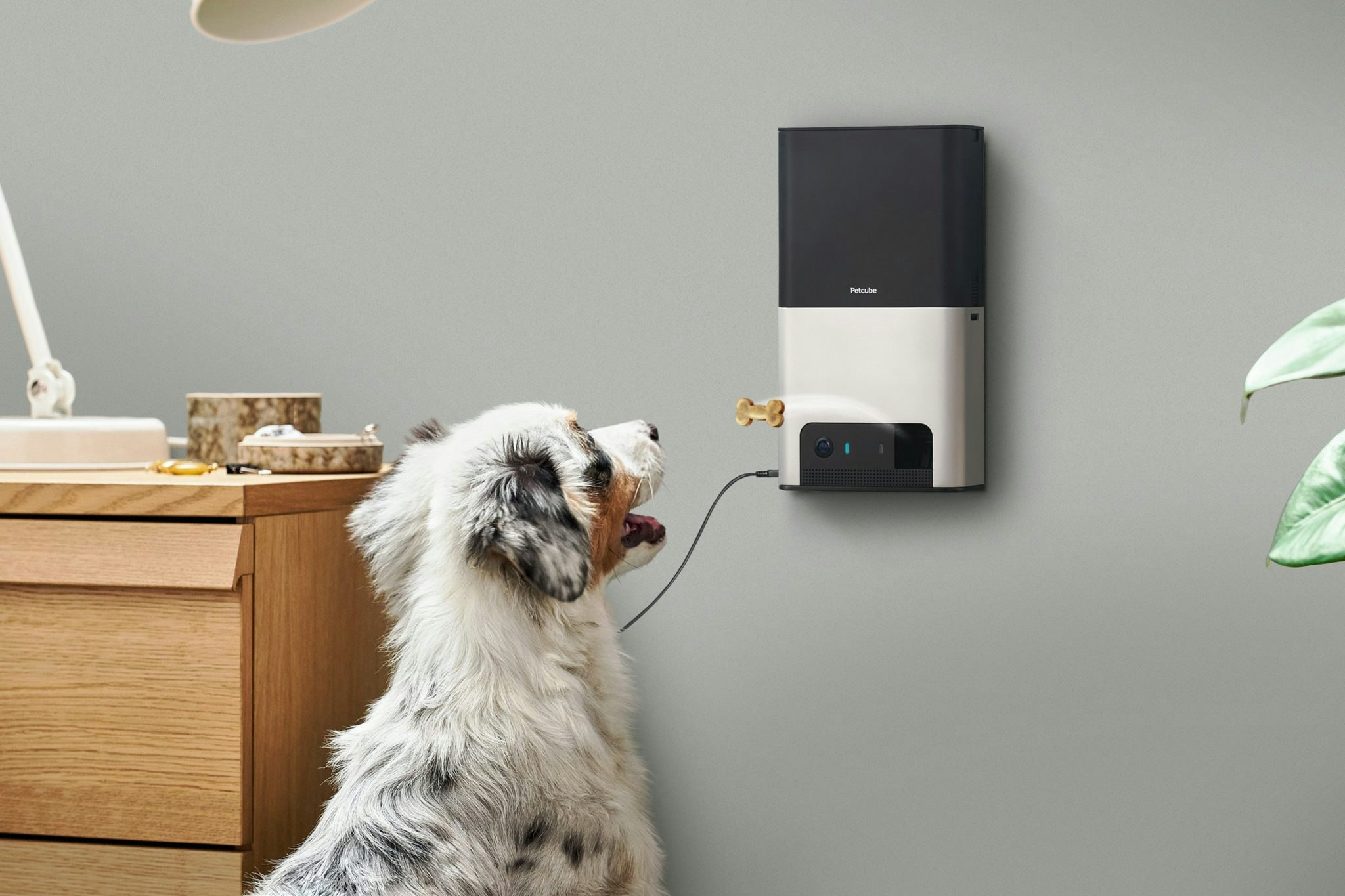Pet owners are often excluded from home rentals by landlords and agents who do not want the hassle and risk of furry residents, whether it be damage to fixtures, fittings and furniture or odour, shedding of hairs or late-night barking disturbing neighbours.
Yet with more and more people becoming pet parents and the share of renters versus home-buyers on the up due to unaffordable house prices across many European countries, the current system is in dire need of change to tackle discrimination. Could digital innovation and proptech help?
Natasha Homer-Earley, a tech veteran with past roles at the likes of Nokia and Virgin, experienced the problem first-hand when moving back to the UK and struggling for months to find a property to let with her dog, Daisy.
The US has around 135m pet owners but just 11m properties accept renters with pets.
Reading online forums and carrying out her own market research across 24 countries, she realised the problem was huge — and growing. Of the 1bn renters in the countries she studied, an estimated 857m owned pets and there were not enough properties for them.
The US, for instance, has around 135m pet owners but just 11m properties accept renters with pets. Europe is faring no better. The UK has an estimated 5m renters with pets and only 119,000 pet-friendly rentals. According to the UK Government, only 7% of landlords advertise their properties as suitable for pets and 55% have blanket 'no pets' bans. The problem has worsened since the Tenant Fees Act in 2019 abolished a provision allowing landlords to request extra security deposits for pets.
In the UK, 55% of landlords have blanket 'no pets' bans.
In Spain, Germany and France, where renting is more commonplace, the problem is worsening as pet ownership increases, says Homer-Earley. Landlords are a major reason so many pets are ending up in animal shelters. With nearly half of pet ownership growth coming from millennials between 2007 and 2017, and half of millennials expecting to be renting when they are 40, the problem will only get worse without change, Homer-Earley, predicts.
Policy and legal changes can help. Campaigners in the UK, for instance, are pushing for changes, such as amending the Tenant Fees Act to allow pet damage insurance to be a permitted payment, which could help address landlords’ fears and allow the insurance sector to start building products.
Digital solutions
Homer-Ealey hopes that digital innovation — along with educating landlords about the typical profile of pet owners as, for instance, longer-term tenants on average — could help too. She has just launched the world’s first online pet referencing platform to do just that.
PetsScore allows renters to create a free digital profile of their pet based on structured questions about the kinds of issues landlords typically worry about. Once created, PetsScore pushes out reference requests to former landlords, letting agents and even sharing economy hosts, which it combines with questionnaire data to produce a risk score, much like a credit rating, which landlords and agents can trust.
Right now, there is no platform that allows the creation of digital pet references.
This begins a digital paper trail that makes life easier for both renters and landlords in the future.
“Right now, there is no platform that allows the creation of digital pet references. You have to create a paper reference,” she tells Sifted. “Creating these digitally and being able to follow the pet from property to property can solve a major pain point”.
Homer-Earley understands the perspectives of both pet renters and landlords, having come from a family of property developers, while her background in tech helped her see how digital innovation could smooth the process. “I’ve seen both sides of this. We needed to create something that would fulfil the requirements of landlord and letting agents with a level of thoroughness you would find in, say, fintech”.
Pet owners are a missed opportunity
She does, however, think landlords are missing a trick in viewing pets as a problem. “Pet renters are the best-kept secret in lettings; they rent for an average of 48 months compared to non-pet renters at 20 months and younger people would pay 10% more rent for a pet”.
Pet renters are the best-kept secret in lettings; they rent for an average of 48 months.
Longer tenancies save a landlord the considerable costs involved in re-advertising. Every UK pet renter could deliver £12k in additional revenue and cost savings per property over a 48 month period. Homer-Earley reckons the UK’s 2.7m private landlords could earn £32bn if they all rented one property to pet owners.
More progressive property owners see pet ownership and long-term renting as a twinned generational trend — and a business opportunity. “When we started in 2012, we noticed a gap in the market for pet owners and how difficult it was finding rental accommodation,” says Harry

Downes, Managing Director at Fizzy Living, a funky UK Built-to-Let developer focusing on younger renters.
“Most of our employees have pets so we knew first-hand how hard it was to rent in London while owning a pet. We also wanted to make renting more accessible to young, pet-owning professionals”.
Citing data on the positive mental health effect of pet ownership, Downes says “pets mean happy tenants, which is good for business”.
Tapping into the pet network
Tech can also help owners once in the properties; the Fizzy Living resident app allows them to find local promotional deals, connect with neighbours and speak to property managers about any issues. “Tenants often link up through the forum to discuss local pet providers and services,” Downes tells Sifted.
The company’s largest development, Fizzy East16, will even introduce a ‘Pawder Room’ complete with a pet wash and grooming station along with grooming items and treats.
The conversation needs to evolve, and technology is pushing it forward.
Over the coming months and years, there will be more opportunities to bring together fintech, proptech and data to improve the matching process. PetsScore, for instance, plans to build partnerships to cover more aspects of the rental process; it recently signed a letter of intent with InventoryBase, a UK software company, to create a purpose-built pet ‘check in’, inspection and checkout process.
“Technology isn’t going to solve the problem of pets damaging property, but it will create a fairer process for all,” Steve Rad, managing director at InventoryBase, tells Sifted. “From one landlord to the next, everyone is different and what one considers fair wear and tear another considers pet damage. The conversation needs to evolve, and technology is pushing it forward.”


